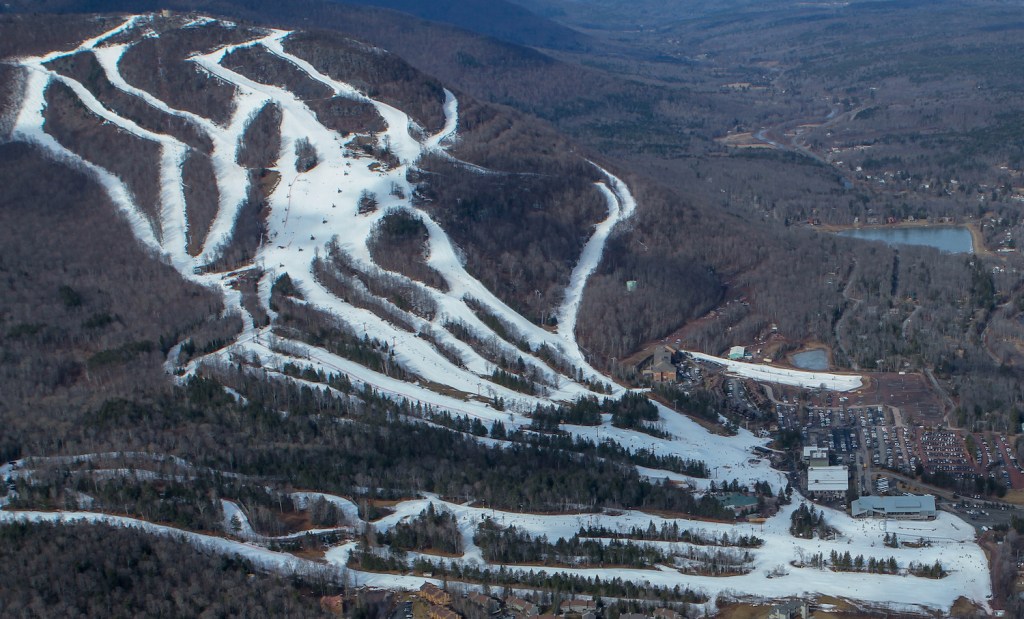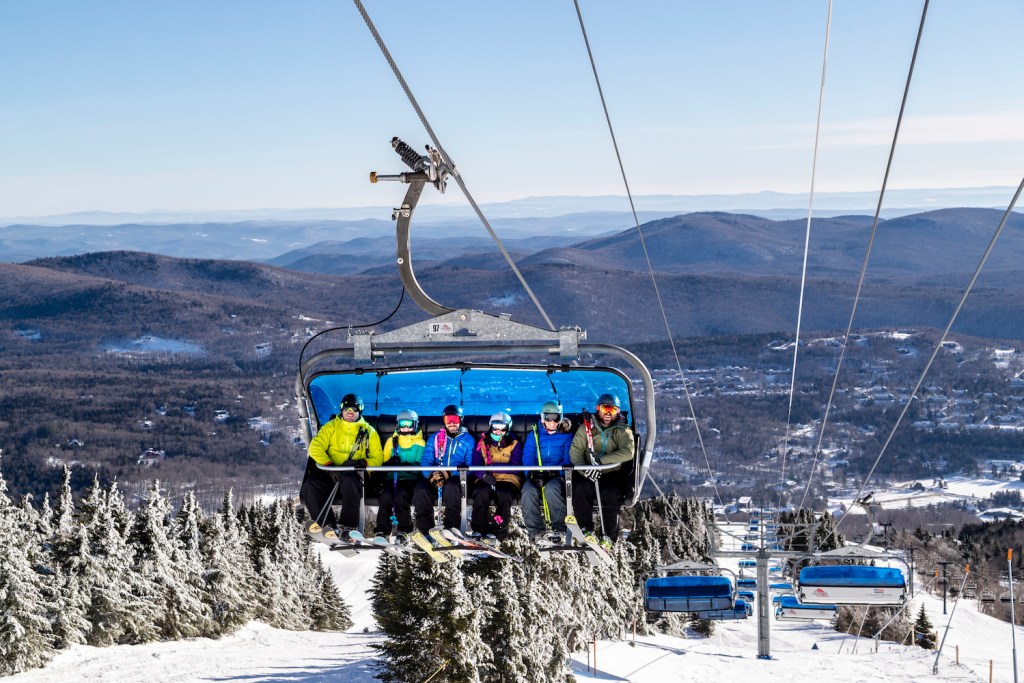Vail Resorts announced on Monday its intent to purchase Peak Resorts, a Missouri-based company that operates 17 ski areas across the Northeast, Mid-Atlantic and Midwest.
Starting this winter, if you buy a Vail Resorts Epic Pass, you’ll now have access to Vail Resorts’ 79 destinations (many of which are owned by Vail Resorts; the rest are affiliated) around the world, including the ski areas formerly owned by Peak Resorts. That includes Vermont’s Mount Snow, New York’s Hunter Mountain; New Hampshire’s Attitash Mountain Resort, Wildcat Mountain and Crotched Mountain; Pennsylvania’s Liberty Mountain Resort, Roundtop Mountain Resort, Whitetail Resort, Jack Frost and Big Boulder; Ohio’s Alpine Valley, Boston Mills, Brandywine and Mad River Mountain; Missouri’s Hidden Valley and Snow Creek, as well as Paoli Peaks in Indiana.

Hunter Mountain, in New York, will now be on the Epic Pass. (Courtesy of Hunter Mountain)
The last few years have seen major consolidation within the North American ski resort industry, with Vail Resorts adding a growing number of ski resorts to their roster. Add to that Alterra Mountain Company, founded in 2018, which currently operates more than a dozen ski resorts around North America and offers the Ikon Pass, a competing collective pass to Vail Resorts’ Epic Pass.
Peak Resorts was the second largest aggregate of ski resorts in the United States, behind Vail Resorts. Plus, it was still growing as of last year. In September 2018, Peak Resorts bought three ski areas—Liberty, Whitetail and Roundtop—from Snow Time, Inc. for a total of $76 million. After this week’s acquisition, which is expected to be completed in fall 2019, Vail Resorts will own 37 ski resorts.
So, what does this mean for skiers and riders? It’s a little early to say, according to Adrienne Saia Isaac, spokesperson for the National Ski Areas Association, the trade organization for the country’s ski areas. “This acquisition is definitely big news in the ski industry,” Saia Isaac told the Co-op Journal. “However, with the announcement just being released, it’s simply too early to tell what impact this will have on the broader industry, and what it will mean for the skiers who frequent Peak Resorts’ ski areas.”
We know, for starters, it means more destinations on your collective pass. For skiers and riders based near those Midwestern and Eastern resorts previously owned by Peak Resorts, they’ll now be able to ski their home mountain on an Epic Pass, which starts at $699, and plan trips to world-class spots like Whistler, British Columbia; Park City, Utah; and Vail, Colorado, without having to buy daily lift tickets.

Mount Snow, in Vermont, has 20 lifts, including this six-passenger bubble chair. (Courtesy of Mount Snow)
Take Chris Peterson. He has been skiing and snowboarding at Mount Snow, Vermont, since he was a kid. He and his wife, Christine, live in Connecticut and own a home near the base of Mount Snow, where they spend weekends and holidays with their four children. He says he reacted with both excitement and trepidation at the news that Vail Resorts would be buying his home mountain.
“I’m excited for the expanded opportunities to take trips out West. Before this, buying a season’s pass worth of lift tickets for four days of skiing somewhere new for a family of six was very difficult,” Peterson said. “But will the personal dynamic change for us? Will the intentions for significant investment, which Peaks Resorts had planned to do in lifts and infrastructure, continue under Vail Resorts? We don’t know that yet.”
As far as Peterson sees it, scale and mergers in the ski resort industry are allowing these resorts to continue to exist and survive. “The cost of season passes is at an all-time low and the access to resorts is at an all-time high,” Peterson said. “I see that as a very good thing.”
